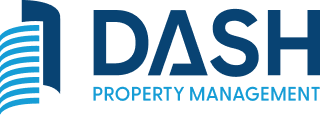Owners
We Make Owning a Rental Property Easy

Why DASH?
Be the Owner, Not the Landlord.
We are your trusted ally for leasing, repairs, sales, insurance, financing, and tax filing, helping you save both time and money. We secure above-average rents and foster increased tenant retention, leading to heightened profitability.
Owners FAQs
Are you an aspiring property owner? We’ve compiled a list of commonly asked queries for you to help you navigate your experience with DASH Property Management.
Choose your topic:
Why should I hire a property management company?
The straightforward answer is: to have someone else take care of all the stresses and hassles involved in leasing, maintenance, staying compliant with the ever-changing regulations and maintaining your property. A good property manager will unlock the true value of your property and show you ways at how to add value where possible.
Think of it this way, you use a mechanic on your car, a Broker for your finances or a lawyer for your legal needs. The same, Landlording should be done by experienced managers.
How Can a Property Manager Help You with Managing Your Rental Properties?
The most important part of an investment property is managing your costs, whether it is financial or time, labour, leverage market trends and industry insights or even your sanity. An experienced property manager can reduce your wasted time, money and frustrations while allowing you to make more data driven decisions.
The most common question I get from clients first inquiring about our services is “What can a property manager do that I can’t”. It’s a very fair question; theoretically, you could do what we do. However:
- Do you want to be committed to the property 24/h and day, 7 days a week, 365 days a year even when you are not feeling well, on vacation or simply busy with your day to day?
- Do you want your tenant to have the ability to contact you regardless of the hour should a toilet back up at 3 am?
- Do you already have a trusted, reliable plumber, carpenter, handyman and electrician on hand?
- What about if your tenant unexpectedly loses their job and can’t make the rental payments, or while they are on vacation the washing machine floods, damaging the unit in the floors below, what would you do?
- How well-versed are you in the Landlord Tenancy Act of Ontario, do you know the depths of both your and your tenant’s rights and responsibilities?
- Do you follow regular cases and judgements to see legal precedent?
- Do you know what the rent increase regulations are? How much and how often, is there a special form?
- Do you know what LMR is or interest on LMR, what are N4 N9, N12, VHT or UHT?
- How do you avoid being one of these Owners?
As a property manager, our job is to know, prepare and be available for all of the above. Just as you have your job specialization; a successful property manager already has the above established in their procedures. It’s what we train for, learn, and continuously update ourselves on, but we do it for hundreds of units, every day.
Most Toronto-based unit property managers’ prices are calculated as a percentage of the rental revenue (generally between 5%-15%) or a minimum fee. So yes, if you can commit a lot of your time, resources and sanity, I’m sure you could manage your property. However, if your peace of mind and spare time is worth more than around $95 per month, Property Management might be the right direction for you and your property.
The below details are reflective of the Ontario Residential Tenancy Act, 2006 (RTA) and enforced per the Landlord Tenancy Board (LTB).
Can a Landlord Refuse to Rent to Someone With a Pet?
Yes. A landlord can refuse to rent to a person who has a pet subject to few conditions. A service animal is not considered a pet.
Can a Landlord Evict a Tenant for Having a Pet?
A tenancy agreement cannot forbid a tenant from having a pet. And once there is a tenancy agreement, a landlord cannot evict the tenant simply for having a pet. This is true even if they agreed that the tenant would not have a pet.
However, there are some cases when the landlord can apply to the LTB to evict a tenant who has a pet. These are some common examples:
- the pet is making too much noise, damaging the unit or causing other residents in the building health issues;
- the breed or species is inherently dangerous (e.g. a tenant’s pit bull could be considered “inherently dangerous” even if it hasn’t bitten anyone);
- the rules of the condominium corporation do not allow pets like the one tenant has.
Can a Landlord Collect a Rent Deposit?
A landlord can collect a rent deposit as long as they ask for it on or before the day that the landlord and tenant enter into the tenancy agreement. The rent deposit cannot be more than one month’s rent unless in certain circumstances. For example, in short-term rentals where the property is furnished, if rent payments are made weekly, the deposit cannot be more than one week’s rent; if rent payments are made monthly, the deposit cannot be more than one month’s rent.
The rent deposit must be used for the rent for the last month before the tenancy ends. It cannot be used for anything else, such as to pay for damages.
Does a Landlord Have to Pay Interest on a Rent Deposit?
The landlord must pay the tenant interest on the rent deposit every 12 months. The percent interest is the same as the rent increase guideline that is in effect when the interest payment is due. The guideline is set each year by the Ministry of Housing.
If the landlord does not pay the interest owed to the tenant when it is due, the tenant can:
- deduct the interest from a future rent payment or file a Tenant Application for a Rebate;
- Instead of paying the tenant the interest, the landlord can reduce the amount needed to update the rent deposit (so that it equals the current rent) by the amount of interest owed.
Can a Landlord Ask for a Deposit for Keys?
The deposit is refundable, and the amount of the deposit is not more than the expected cost of replacing the key(s) if they are not returned to the landlord.
The landlord must give the deposit back when the tenant turns in their key(s) at the end of their tenancy.
Can the Landlord Charge the Tenant a Damage Deposit?
No. A landlord cannot collect a damage deposit to pay for damage done to the unit. Also, a landlord cannot use the last month’s rent deposit to cover damages in the unit. The rent deposit can only be used for the last month’s rent before the tenancy ends.
If the landlord finds that a tenant has damaged the unit or caused damage to the building, the landlord can give the tenant a notice of termination and/or ask them to pay for the damages. If the tenant doesn’t pay, the landlord can apply to have the LTB determine if there are damages and what should be done about them.
Who is Responsible for Maintaining the Unit?
It is the landlord’s responsibility to maintain the unit in a good state of repair, even if:
- the tenant was aware of problems in the unit before they moved into it;
- the lease says that the tenant is responsible for maintenance.
However, the tenant is responsible for keeping the unit clean, up to the standard that most people consider ordinary cleanliness. The tenant is also responsible for repairing or paying for any damage to the rental property they caused or caused by their guests or another person living in the rental unit. Landlords are responsible for wear and tear and between tenancies.
Who Inspects My Unit and When?
Keeping an eye on your property is important. We document a detailed move-in report with new occupants showing the condition in which they received the unit, upon their move out we will compare the reports to determine the tenants’ care of your unit and any maintenance that may need to be addressed. General wear and tear should be expected when renting out your property and can not be held against a tenant as per the Landlord Tenancy Act.
Tenants are responsible for any damages or misuse of the property.
Think back to the first time you ever signed a lease, or a home insurance policy, what about your first second-hand car, was there ever a point after the process was finalized you thought “Oh well, I know now for next time”. Sometimes a negative first experience teaches you to be much smarter in the long run. When choosing a property manager you’re essentially handing over to them hundreds of thousands of dollars, arguably your most expensive asset. So choosing the wrong one may end up costing you more than new brakes and spark plugs.
We’re happy with what we have established with our clients. There are some questions we insist everyone knows or ask before committing (as listed below).
Remember, as important as questions are, trust your gut. Every tenant, rental, property, and maintenance issue is different every time, no tenancy situation is the same in this industry. But with questions, you will know if your potential Property Manager is confident and experienced enough to handle each one professionally, efficiently and with your best interest in mind.
Are There Start-Up Fees?
A lot of companies request a set-up fee to open and prepare your file/account (some range from $100-$400). We disagree with this, which is why we do not practice such approaches, especially with the current economy. There is a lot of additional work to be done when a new client joins but this should be incorporated in the monthly rate or in the work that obtaining a new client entails. Companies should be happy to get your business; you should not have to pay extra for them to consider or start managing your property.
How Long Have They Been Working in the PM FIeld?
We appreciate the growth in the property management industry, reflecting the rising value of investment properties. However, experience is key to delivering exceptional service. With over a decade of managing more than 200 properties, we have the expertise to handle various “special situations” that may arise. Our strategically located office ensures quick, on-site assistance for both property owners and tenants. This proximity also strengthens our relationships with local contractors, allowing us to address property needs promptly.
Are Property Inspections Included in Your Monthly Fee? And How Often?
Typically we perform minimum 3 inspections in the first year of a lease. In the event additional inspections are requested, our team will gladly conduct additional inspections at a per visit cost. Move-in and out inspections provided to document the condition of the unit between tenancies.
Is Maintenance on the Property Conducted by In-House or Exterior Contractors? And Who Pays What?
This varies between every property management company. At DASH we hire third party professionals to carry out our repairs and maintenance as needed and will share a detailed invoice. Be sure to get a clear answer or you might find monthly deductions more frequently than required. Some property managers add a percentage to the total invoice, this is an industry standard.
What Services Does DASH Provide?
DASH service include:
- Handling rent collection
- Issuing tenants notices
- Rent increases
- Non payment
- Coordinating repairs
- Processing bills
- Processing non resident taxes
- Conducting inspections
- Enforcing lease terms
- Liaising with the tenants
- Building property management
- Providing monthly owner statements
- Depositing rent balances to the owner’s Canadian bank account
- Assisting with interior renovations and more.
Our experience can also mediate typical tenant/landlord issues, letting you know when you are in the right or wrong and following the guidelines of the Ontario Landlord Tenancy Act while acting on your behalf. We have no set-up fees because we know you’ll continue to have us manage your property.
How Does DASH Benefit Me?
- Monthly on-time rent collection and direct deposit to owner bank account
- Dedicated account manager
- Move In & Move Out inspections
- 24/7 emergency service
- Coordinating tenants’ requests
- Communication with building management
- Unlimited 24/7 online access to reports and financial information
- Knowledge of Residential Tenancy Act to avoid costly mistakes
- Professional Realtors who monitor Toronto’s market 365 days a year to maximize your rent
- Access to some of the best prices and property services
- Freedom from record keeping and “landlording”
- Save travel and worry time
- Serving tenants’ notices as per RTA
- Competitive insurance package
- Centrally located to better serve you and your tenants
We make property ownership easy.
What is required to onboard with DASH?
- Government Photo ID;
- Signed Management Agreement;
- Proof of title/ownership (status certificate, copy of property tax etc.);
- Void check of account you want funds deposited into;
- At least 2 of all keys (unit, mail, locker, locker room, amenities, Fob’s, garage, remotes etc.) one set for DASH. Two sets for tenants our team will collect this information.
When and How Do I Get Rental Payments?
DASH collects the rental payments from all tenants on the first of every month. In some exceptions, rent may be prorated due to the move-in date.
On the last banking day of the month, funds are directly to the owner’s Canadian bank account from the DASH account to your Canadian account. It can sometimes take up to 1 banking day for the funds to be visible in your account, so please keep in mind if you have pre-authorized payments withdrawn from your account monthly.
At the end of the month, you will also receive notification of your new statement available on your portal. The statement will reflect the funds DASH collected, minus any expenses (with all receipts attached) and the amount deposited into your account, for your records.
You may LOG IN anytime to view your portal.
How Does DASH Handle Tenant Issues?
Communication, Communication, Communication. Our team will obtain the details to make sure we can resolve any issue as quick and smoothly as possible. In the extreme circumstances legal steps may be required.
Who is a Canadian Non-Resident?
If you are outside of Canada for more than 183 days a year, even if you are a Canadian citizen, you are considered a non-resident, therefore you have to pay withholding taxes on your property and the income generated from it. There are some situations where you can get permission from the government to retain your residency status even from afar, but you would have had to apply with them for this (generally before leaving the country).
Not sure whether you are a non-resident for tax purposes, HERE is additional information for you to review.
What Closing Costs Should I Expect When Purchasing a Property?
Many buyers are not aware that their property purchase price is not the full price they will have to pay. The majority of the closing costs are due on the final closing or registration of your property and not on the day you receive the keys or occupancy.
Depending on what type of property you end up buying your closing costs will vary.
Here is a summary of what you should be considering when you buy real estate in Toronto:
Title insurance – subject to the overall purchase price, mortgage details and property type, however condominiums under $1M should budget approximately $650.
What Other Costs Are Involved When Buying a Resale Property in Toronto?
In addition to your purchase price, there are additional costs involved which should be taken into consideration. Certain funds should be set aside to avoid unpleasant surprises on the closing date.
Resale residential property purchases are inclusive of HST unlike in newly constructed properties. Make sure that in your purchase agreement, the HST is stated as included in the purchase price.
You should budget for a real estate solicitor who has the time and expertise to walk you through the transaction, fees vary yet make sure you are aware of the legal disbursements which are in addition to the legal fees. Also, your fees will depend on whether you are using a power of attorney or taking a mortgage. You should budget approximately $2,000 for such cost however strongly suggest discussing this with your solicitor in advance. Note, that legal fees are subject to HST.
What Is the Land Transfer Tax and When Is It Paid?
This is a tax you will be paying to the Province of Ontario and to the City of Toronto on registration and not on occupancy, there is a progressive formula that will apply based on your purchase price. First-time Canadian home buyers can receive up to $8,475 (Ontario $4,475 and Toronto $4,000) in land transfer tax refunds. Non-residents typically are not eligible for the first-time home buyer tax credit. If you are a first-time home buyer consult with your solicitor and check if you qualify for this credit.
In addition, first-time home buyers are also eligible to buy properties with 5% or 10% down payment subject to various Government of Canada rules.
How Are Closing Adjustments Reflected in the Final Costs?
Landlords are responsible for paying property taxes and monthly condominium fees. Subject to when closing takes place (first, middle or last day of the month) the seller has probably prepaid these expenses, therefore the buyer should credit the seller for the portion prepaid after the closing date, same practice takes place for the last month’s rent and interest on last month’s rent if the property is rented.
In the event the property taxes are not known the solicitors will agree on some hold back and when the tax bill becomes available adjustment will take place. Note, that adjustments will take place on your statement of adjustment and will be added or deducted from the final price.
What Additional Closing Costs Are Involved When Buying a Pre-Construction/New Home?
Solicitor and Land Transfer Tax will be the same as in RESALE PROPERTY however, new construction property has its unique items such as:
GST/HST New Residential Housing Rebate is to be paid on closing and if you qualify a rebate can be filed and received fast (ASK US HOW).
Adjustments – New construction agreements encompass various taxes, levies, and other charges. These include Development Charges, Education Levies, Parkland Levies, TARION fees, and various other fees as part of your agreement of purchase. In the future, ensure you do not visit a sales office without one of our experienced agents to guarantee you are well-protected and informed about your purchase decision.
For example, for an average condo purchased at $450,000, closing costs can be as high as $55,000, out of which we can claim back about $30,000 in a short time.
Make sure you use our experienced realtors who can point out the various costs and how you can save big amounts.
We are always HERE should you need help with your purchase, GST/HST rebate, leasing, insurance, and more.
NOTE
Most lenders will not allow you to add your closing costs to the mortgage amount, therefore always add the closing costs as an additional cash amount you will require.

DASH Newsletter Sign-Up
Subscribe to the DASH Newsletter for expert market updates, new listing insights, and exclusive investment opportunities. Stay ahead of the curve with our comprehensive real estate intelligence delivered straight to your inbox. Join our growing community of savvy investors and don’t miss out on the latest news and opportunities.

Owners Portal
Want to review invoices, update your personal information or find our more details?
Use our secure portal to access your account, track rent payments, request maintenance and more.
Free Rental Estimate
In today’s rental market, pricing is everything.
Connect with our experts to evaluate your property and give you an accurate estimate on how much your property could rent for.


